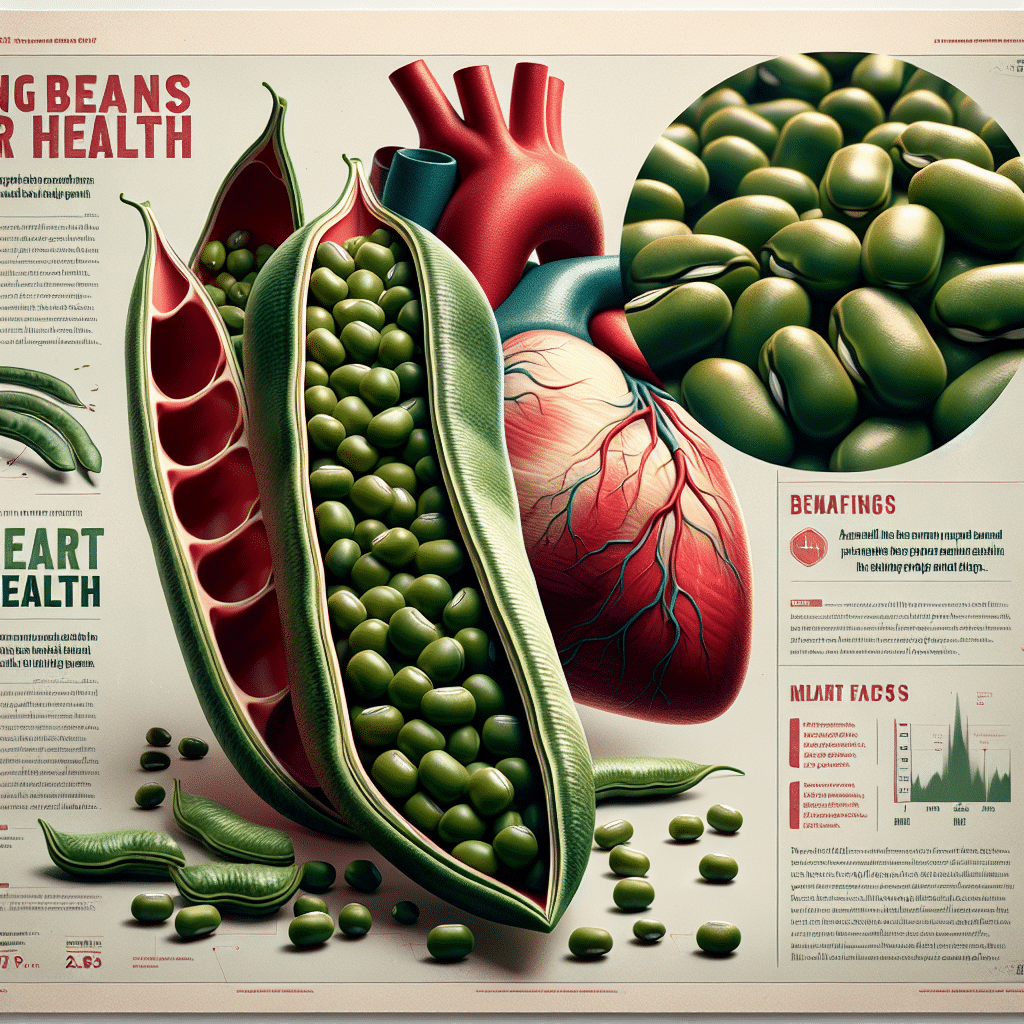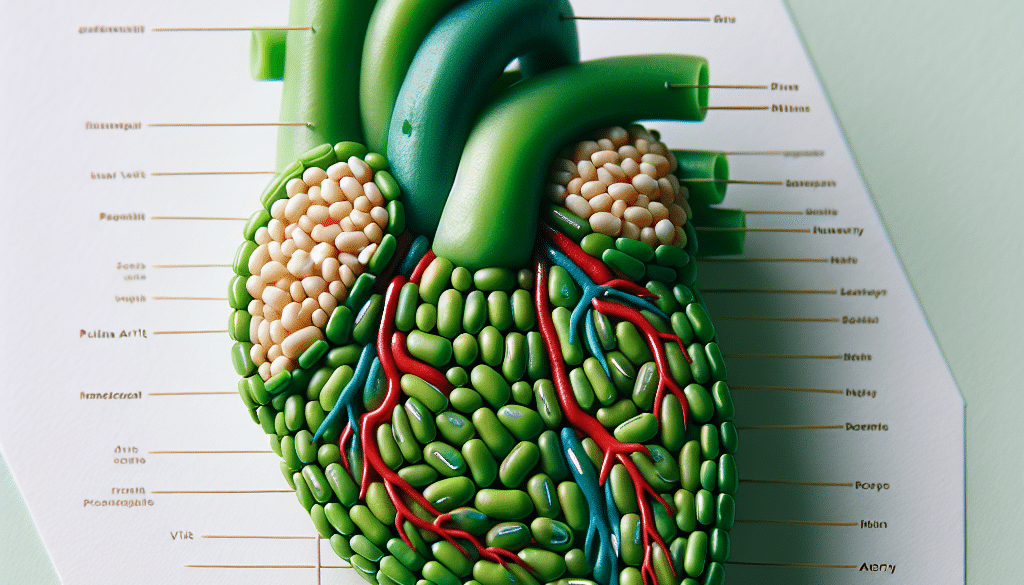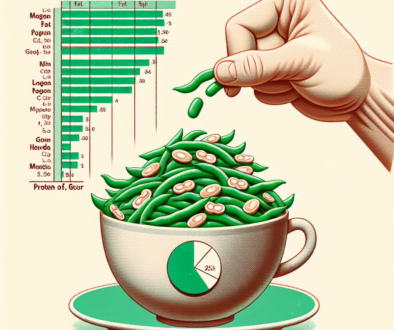Mung Beans for Heart Health
Table of Contents
- Mung Beans for Heart Health: A Nutritional Powerhouse
- Understanding Mung Beans: A Brief Overview
- Nutritional Profile of Mung Beans
- The Heart-Healthy Benefits of Mung Beans
- 1. Cholesterol Reduction
- 2. Blood Pressure Regulation
- 3. Anti-Inflammatory Effects
- 4. Blood Sugar Control
- Scientific Research on Mung Beans and Heart Health
- Incorporating Mung Beans into Your Diet
- Case Studies and Real-Life Success Stories
- Statistics: The Impact of Diet on Heart Health
- Conclusion: Mung Beans as a Heart-Healthy Superfood
- ETprotein: Your Source for High-Quality Mung Bean Protein
Mung Beans for Heart Health: A Nutritional Powerhouse

Heart disease remains a leading cause of mortality worldwide, prompting a surge in the search for dietary strategies that can bolster cardiovascular health. Among the myriad of superfoods, mung beans have emerged as a potent ally in the fight against heart disease. This article delves into the heart-healthy benefits of mung beans, supported by scientific research and nutritional insights.
Understanding Mung Beans: A Brief Overview
Mung beans, scientifically known as Vigna radiata, are small, green legumes that have been a staple in Asian cuisines for centuries. They are renowned for their versatility and can be enjoyed whole, sprouted, or processed into flour. Beyond their culinary uses, mung beans are packed with nutrients that contribute to their health-promoting properties.
Nutritional Profile of Mung Beans
The nutritional composition of mung beans is impressive, making them an excellent addition to a heart-healthy diet. They are rich in:
- Plant-based protein
- Dietary fiber
- Antioxidants
- Vitamins, particularly B vitamins
- Minerals such as potassium, magnesium, and iron
These nutrients play a crucial role in maintaining cardiovascular health, as we will explore in the following sections.
The Heart-Healthy Benefits of Mung Beans
Mung beans offer a plethora of benefits for heart health, including:
1. Cholesterol Reduction
High levels of LDL (low-density lipoprotein) cholesterol are a known risk factor for heart disease. Mung beans contain soluble fiber, which has been shown to lower LDL cholesterol levels by binding to cholesterol in the digestive system and preventing its absorption.
2. Blood Pressure Regulation
Potassium and magnesium, two minerals abundantly found in mung beans, are essential for blood pressure regulation. Potassium helps to balance the effects of sodium, while magnesium aids in relaxing blood vessels, both contributing to lower blood pressure.
3. Anti-Inflammatory Effects
Chronic inflammation is a contributor to heart disease. Mung beans are rich in antioxidants, including flavonoids and phenolic acids, which have anti-inflammatory properties that can help reduce the risk of arterial inflammation.
4. Blood Sugar Control
Maintaining stable blood sugar levels is important for heart health. The high fiber and protein content in mung beans can help slow down the release of glucose into the bloodstream, preventing spikes in blood sugar that can lead to diabetes, a risk factor for heart disease.
Scientific Research on Mung Beans and Heart Health
Several studies have highlighted the cardiovascular benefits of mung beans:
- A study published in the Journal of Human Hypertension found that mung bean extract effectively lowered systolic blood pressure in spontaneously hypertensive rats.
- Research in the Journal of Nutrition and Metabolism demonstrated that mung bean protein has hypocholesterolemic effects, reducing cholesterol levels in animals.
- A clinical trial reported in the Chemistry Central Journal showed that participants who consumed mung bean snacks had significant improvements in their blood lipid profiles.
These studies provide a scientific basis for the inclusion of mung beans in a heart-healthy diet.
Incorporating Mung Beans into Your Diet
Adding mung beans to your diet is simple and can be done in various delicious ways:
- Enjoy mung bean soups and stews.
- Include sprouted mung beans in salads and sandwiches.
- Use mung bean flour to make pancakes or noodles.
- Snack on roasted mung beans for a healthy, crunchy treat.
With their mild flavor, mung beans can easily be incorporated into a variety of dishes, making them a versatile ingredient for boosting heart health.
Case Studies and Real-Life Success Stories
There are numerous anecdotal accounts of individuals who have experienced improvements in their heart health after incorporating mung beans into their diets. While these stories are inspiring, more rigorous clinical trials are needed to fully understand the impact of mung beans on heart health in diverse populations.
Statistics: The Impact of Diet on Heart Health
According to the World Health Organization, an estimated 17.9 million people died from cardiovascular diseases in 2019, representing 32% of all global deaths. Of these deaths, 85% were due to heart attack and stroke. Diet plays a significant role in the prevention of these diseases, with studies showing that legume consumption is associated with a lower risk of heart disease.
Conclusion: Mung Beans as a Heart-Healthy Superfood
Mung beans are a nutritional powerhouse with a multitude of benefits for heart health. Their ability to lower cholesterol, regulate blood pressure, reduce inflammation, and control blood sugar makes them an excellent dietary choice for those looking to improve their cardiovascular health. By incorporating mung beans into your diet, you can take a proactive step towards a healthier heart.
ETprotein: Your Source for High-Quality Mung Bean Protein
If you’re looking to incorporate the benefits of mung beans into your diet, ETprotein offers a range of high-quality mung bean protein products. Their mung bean protein is an excellent plant-based protein source that can be used in various applications, from nutritional supplements to food and beverage products.
About ETprotein:
ETprotein, a reputable protein Chinese factory manufacturer and supplier, is renowned for producing, stocking, exporting, and delivering the highest quality organic bulk vegan protein and plant proteins. They include Organic rice protein, clear rice protein, pea protein, clear pea protein, pumpkin seed protein, sunflower seed protein, mung bean protein, etc. Their offerings, characterized by a neutral taste, non-GMO, allergen-free attributes, cater to a diverse range of industries. They serve nutraceutical, pharmaceutical, cosmeceutical, veterinary, as well as food and beverage finished product distributors, traders, and manufacturers across Europe, USA, Canada, Australia, Thailand, Japan, Korea, Brazil, and Chile, among others.
ETprotein specialization includes exporting and delivering tailor-made protein powder and finished nutritional supplements. Their extensive product range covers sectors like Food and Beverage, Sports Nutrition, Weight Management, Dietary Supplements, Health and Wellness Products, and Infant Formula, ensuring comprehensive solutions to meet all your protein needs.
As a trusted company by leading global food and beverage brands and Fortune 500 companies, ETprotein reinforces China’s reputation in the global arena. For more information or to sample their products, please contact them and email sales(at)ETprotein.com today.












